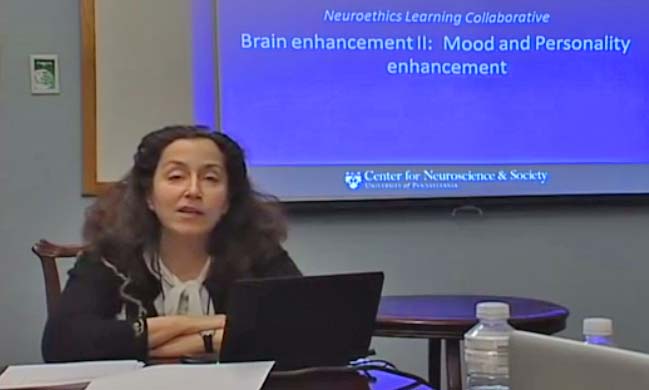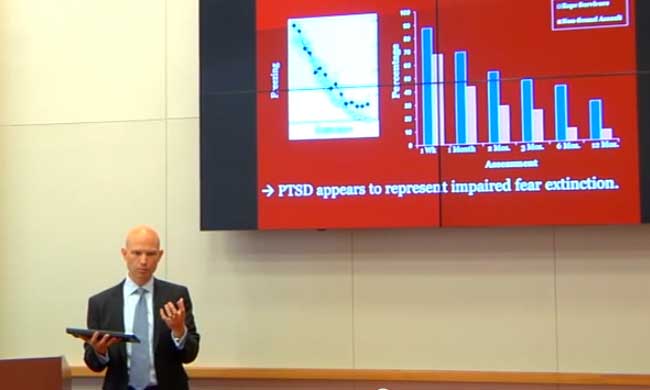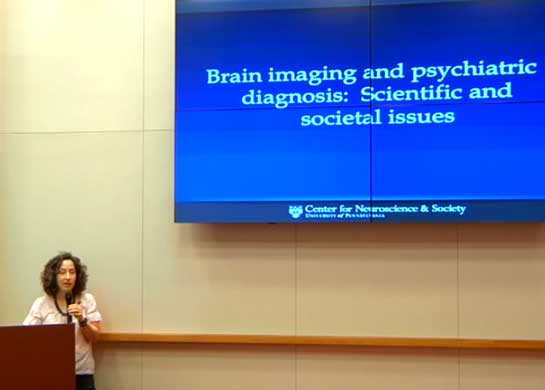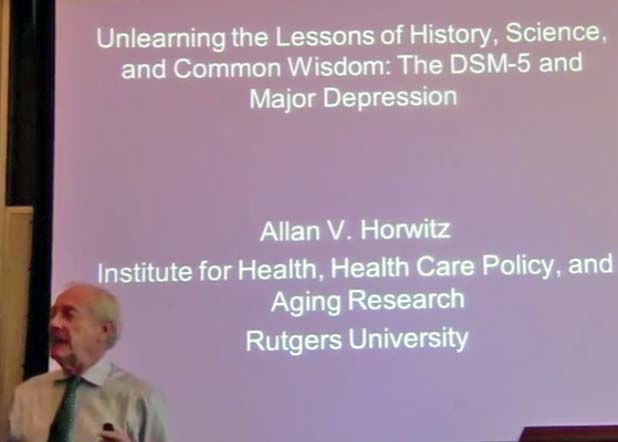This brief introduction to neurolaw focuses on the question "What is the relevance of neuroscience to law?" Professor Farah describes three possible roles for neuroscience, [...]
Introduction to Neurolaw: Part 2 (Martha J. Farah, PhD)
The nature of excusing conditions, including insanity and immaturity, are reviewed, and the relevance of neuroscience to legal excuses and mitigation is discussed. Slides for [...]
Personality and Mood Enhancement (Martha J. Farah, PhD)
Cognitive ability is not the only trait that people seek to enhance pharmaceutically. Personality and mood can also be altered pharmacologically and are increasingly used [...]
The Medication of Sadness (Robert DeRubeis, PhD)
Recent decades have seen progressively more inclusive definitions of depression in psychiatry, with less severe mood-related problems being classified as depression and correspondingly more patients [...]
Combat-related PTSD and the Brain (Seth Gillihan, PhD)
Post-Traumatic Stress Disorder poses important scientific challenges to researchers, personal challenges to sufferers, and social, ethical and economic challenges to society. In this lecture, researcher [...]
Brain Imaging and Psychiatric Diagnosis: Scientific and Societal Issues (Martha J. Farah, PhD)
Psychiatric disease is generally believed to be brain disease, and neuroimaging has been used fruitfully in psychiatry research. Why, then, is neuroimaging not used for [...]
4th Annual GVR Khodadad Lecture: The Neuroscience of Selfishness: Psychopathy as an Initial Model (Adrian Raine, D.Phil)
Adrian Raine is the Richard Perry University Professor in the Departments of Criminology, Psychiatry, and Psychology at the University of Pennsylvania. Dr. Raine's main area of interest is [...]
The DSM-5 and Major Depression (Allan Horwitz, PhD)
Depression has become the single most commonly treated mental disorder, amid claims that one out of ten Americans suffer from this disorder every year and [...]







